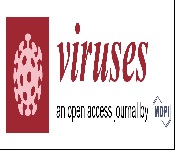Epidemiology Live 2023
About conference
Welcome to Epidemiology 2023
We are pleased to invite you all to attend the “7th International Conference On Epidemiology and Public Health” which will be held during November 21-22, 2023 in Rome, Italy as a Speaker or Delegate. The topic of the current year's gathering is Novel ways of presenting and providing insights into new statistical methods, or novel uses of existing methods, in epidemiological studies which will give a worldwide Platform to talk of present and future of Epidemiology.
Hear, learn and explore the Latest Research involved in the field of Epidemiology and Public Health.
Benefits of Attending:
- Exchange ideas and network with leading healthcare experts, Epidemiologists, researchers, clinicians, public health professionals and researchers from more than 40 countries.
- Discuss ways to collaborate in putting quality initiatives in place throughout the Epidemiology and Infectious Diseases and Epidemiology and Public Health.
- Participants can gain direct access to a core audience of professionals and decision makers and can increase visibility through branding and networking at the conference.
- Learn and discuss key news and challenges with senior level speakers.
- With presentations, panel discussions, roundtable discussions, and workshops, we cover every topic from top to bottom, from global macro issues to strategies to tactical issue
Target Audience:
Academic researcher, Epidemiologists Healthcare experts, Researchers, Medical colleges, Training institute, Epidemiology Societies & Association, Medical & Pharmacy, Companies, Software development companies, Business entrepreneurs, Public Health experts
Who should attend?
Scientists and researchers related to the broad areas of Epidemiology, Health care, Nutrition & Infectious Diseases are most likely to attend Epidemiology 2023 and utilize the scope of extending their skills, and their work on basic and significant applications. The Epidemiology 2023 conference will be useful to participants from both Industrial as well as Academic fields in all the domains of Health care sectors. All other target audience includes:
- Researchers
- Scientists
- Health care experts
- Epidemiologists
- Nutritionists
- Physicians
- Nurse practitioners
- Health care analysts
- Doctors
- Business delegates
- Advertising and Promotion Agency Executives
- Professors
- Students
- Young Researchers
Why to attend?
Epidemiology 2023 conference brings together experts, leading researchers, scholars, scientists, professors from fields of Health care, Epidemiology, Nutrition and other related areas to interact and exchange ideas about the state of the art technologies related to Infectious Diseases and Epidemiology. The conference will also provide an insightful understanding to the issues arising out of the Epidemiology and Infectious Diseases and the future concern and remedies from that. Epidemiology 2023 provides an opportunity to interact with eminent Scientists, researchers, Business Leaders, experts from all over the world.
Session and Tracks
Public health is concerned with protecting the health of entire populations. These populations can be as small as a local neighbourhood, or as big as an entire country or region of the world. Public Health is a part of sciences, skills and convictions that is focused on the preservation. In descriptive epidemiology, scientists do use of available data to identify health related problems.
- Epidemiology and Community Health
- Epidemiology and Disability
- Epidemiology and Mental Health
- Epidemiology and Aging
- Epidemiology Evidence based practices
- Epidemiology and Demography
- COVID-19
Corona virus Disease (COVID-19) is an infectious disease caused by a newly discovered corona virus. Most people infected with the COVID-19 virus will experience mild to moderate Respiratory illness and recover without requiring special treatment. Older people and those with underlying medical problems like cardiovascular disease, diabetes, chronic respiratory disease, and cancer are more likely to develop serious illness. The best way to prevent and slow down transmission is be well informed about the COVID-19 virus, the disease it causes and how it spreads. Protect yourself and others from infection by washing your hands or using an alcohol based rub frequently and not touching your face.
3. Epidemiology and Infective Diseases
Emerging infectious diseases are induced by various microorganisms, such as bacteria, viruses, parasites or fungi; the diseases can be spread from one person to another. Infectious Disease Epidemiology helps us to understand the correlations of contaminating agents, their hosts, vectors and environment. This information helps in understanding of how disease patterns vary among populations and how that impacts development of advanced therapies and treatment interventions.
- Epidemiology and Infection control
- Epidemiology and Diseases
- Epidemiology and HIV
- Epidemiology and Zoonosis
- Epidemiology and Etiologic
- Infection Treatment and Control
Contamination Counterproductive action and control is required to keep the transmission of Infectious ailments in all social frameworks. These maladies are typically caused by Microscopic Organisms and can be spread by human to human contact, creature to human contact, human contact with a contaminated surface, Airborne Disease through little beads of uncontrollable operators suspended perceptible all around lastly, by such regular vehicles as water. Infection Control and Counteractive action requests a basic comprehension of the study of disease transmission of maladies, by a little chance factors that expand quiet defencelessness to contamination, and the methodology where medicines that may bring about diseases.
The Epidemiology of Cancer is the study of the factors affecting cancer, as a way to infer possible trends and causes. The study of cancer epidemiology uses epidemiological methods to find the cause of cancer and to identify and develop improved treatments. The most significant risk factor is age. Cancer Epidemiology closely mirrors risk factor spread in various countries. Hepatocellular Carcinoma (liver cancer) is rare in the West but is the main cancer in China and neighbouring countries, most likely due to the endemic presence of Hepatitis B and aflatoxin in that population.
Nutritional Epidemiology is a relatively new field of medical research that studies the relationship between nutrition and health. Diet and physical activity are difficult to measure accurately, which may partly explain why nutrition has received less attention than other risk factors for disease in epidemiology.
- Epidemiology and Nutrition health
- Epidemiology and Nutrition Diet
- Epidemiology and physical activity
- Cardiovascular Epidemiology
Cardiovascular Epidemiology is the field which deals with heart related epidemiology. This field is the interdisciplinary field where the trainees in epidemiology were encouraged to lead roles related to cardiovascular diseases. The mortality rate is increasing around the world due to cardiovascular diseases. And field focuses on treatment, management of the cardiovascular health of the people.
- Cardiovascular disease (CVD)
- Multidisciplinary workforce in cardiovascular epidemiology
- Recognition of the social determinants of cardiovascular health and disease prevention of CVD
- Recognition of the essential role of community-based approaches to cardiovascular health
- Tuberculosis Epidemiology
Study of the Epidemiology of Tuberculosis has been greatly assisted by the availability of a test for infection, the tuberculin test, that enables one to distinguish those who are infected but without disease from those who are uninfected. The principal risk for acquiring infection with Mycobacterium tuberculosis is breathing. Tuberculosis due to reactivation of latent bacilli is presumed to result from a failure in immune surveillance.
- Epidemiology and immune surveillance
- Epidemiology and Tuberculosis risk factor
- Molecular Epidemiology
Molecular Epidemiology is a branch of epidemiology and medical science that focuses on the contribution of potential genetic and environmental risk factors, identified at the molecular level, to the etiologic, distribution and prevention of disease within families and across populations. This field has emerged from the integration of molecular biology into traditional epidemiological research. .
- Molecular surveillance
- Disease risk factors
- Characterizing the evolution of pathogens
- Classifying new pathogen species
- Injury Epidemiology
Injury epidemiology is the characterization of injury occurrence, the identification of risk factors and the strength of effect of those factors, as well as potentially protective factors related to the development and evaluation of injury prevention strategies and programs. Injuries can occur in every environment from homes to the workplace, recreational settings including sports settings, and to transportation settings between these environments.
- Epidemiology and Injury Prevention
- Epidemiology and Injury Surveillance
- Epidemiology and Injury Risk Identification
- Risk Factor and Obesity
In epidemiology, a risk factor is a variable associated with an increased risk of disease or infection. When evidence is found the term determinant is used as a variable associated with either increased or decreased risk.
- Epidemiology and Risk Factor
- Epidemiology and disease
- Epidemiology and infection
Obesity has been observed throughout human history. Many early depictions of the human form in art and sculpture appear obese. However, it was not until the 20th century that obesity became common so much so that, in 1997, the World Health Organization (WHO) formally recognized obesity as a global epidemic.
- Prevalence of childhood obesity
- Health Examination Study
- Nutrition Examination Study
- Public Health Nursing
General Health Nursing is the down to earth approach of advancing and ensuring the soundness of populaces utilizing information from nursing, social, and general wellbeing sciences it additionally alludes to the quality of open prosperity. Open prosperity clinical guardians are a network of clinical overseers who are remembered for joining a network and who knows well practically clinical systems and treatment of prosperity. Open prosperity nursing is one of the disregarded fields of the wellbeing area. The medical caretakers must be set up to react straight-forwardly to general wellbeing emergencies; from episodes of sickness to catastrophic events. It is imperative to give the information on emerging public medical problems, to help attendants to settle on the most educated treatment choices.
The Epidemiology and Infection Control Unit utilizes epidemiological systems to screen and control transferable illnesses. The study of disease transmission is the instrument to find the explanation behind the wellbeing ailments occurring in masses. The people group of corrupted people were investigated. It is portrayed as the deliberate consider of maladies and its control. It consolidates consider of scattering and affirmation of hazard parts identified with prosperity in a people and the convincing measure.
Mental the study of disease transmission is a field which considers the causes of mental issue in the public arena, just as conceptualization and predominance of psychological maladjustment. It is a sub-field of the more broad the study of disease transmission. It has establishes in sociological investigations of the mid twentieth century. Be that as it may, while sociological exposures are still broadly concentrated in mental the study of disease transmission, the field has since extended to the investigation of a wide territory of ecological hazard factors, for example, significant life occasions, just as hereditary exposures.
Genetic Epidemiology is the study of the role of genetic factors in determining health and disease in families and in populations, and the interplay of such genetic factors with environmental factors. Genetic epidemiology seeks to derive a statistical and quantitative analysis of how genetics work in large groups.
For the most part Tropical Diseases environs all illnesses that happen totally and transcendently in tropical districts. Regularly this term is taken to elude numerous irresistible infections like jungle fever, leishmaniasis, schistosomiasis, onchocerciasis, lymphatic filariasis, Chagas illness, African trypanosomiasis, dengue and so forth which flourish in hot and sticky conditions.
The general practice is one of the clinical practices, where the social insurance proficient treats the ceaseless and serious ailment and gives preventive consideration and prosperity guidance to the patients. What's more, fundamental consideration is the prosperity care given to the accumulate of people or network in some time as of late moving nearer to the helpful master or the centre. Basic consideration and general practice are the prior measures taken some time as of late start the treatment.
Market Analysis
Epidemiological surveillance is carried out globally to look at the causes of disease etiology, its transmission, and its prevention. This conference offers a global forum for the most recent research on infectious diseases, non-communicable diseases, and diseases that are on the rise or returning. This conference has the potential to provide medical specialist factors such as the genesis, spread, and current status of various diseases and disorders that are responsible for fatalities in a number of nations.
Additionally, illnesses are covered. It also covers disease-related current research, which is useful for businesses and students, and it lists the researchers' nationalities. Encourage the use of epidemiology and its use in addressing health issues. Improve the design of public policies by addressing identified local and national health objectives and challenges.
Ensuring that all populations have access to services for health promotion and illness prevention as well as appropriate and effective care. Encourage the creation of epidemiological methods and their improvement. In order to identify health issues and priorities, communities and groups at risk must be assessed and monitored for their general well-being.
Encourage communication among epidemiologists around the world and among all other people concerned in health about epidemiological methodology and findings. Applying statistical methods to the resolution of problems requires collaboration with all national and international organizations that are dedicated to the promotion of health.
Increase the national and global dissemination of epidemiological findings. To increase the use of statistical approaches by biostatisticians in dealing with issues relating to pharmaceuticals and public health.
Epidemiology Associations
American Board of Emergency Medicine | American Board of Family Medicine | American Board of Internal Medicine | European Board of Medical Genetics | American Board of Medical Specialties | American Board of Neurological Surgery | Nutrition Conferences | American Board of Obstetrics and Gynaecology | American Board of Ophthalmology | American Board of Orthopaedic Surgery |European Board of Otolaryngology | American Board of Pathology | American Board of Paediatrics | American Board of Preventive Medicine |European Board of Psychiatry and Neurology | Cardiology Conferences | American Board of Radiology | European Board of Surgery | American Cancer Society | American College of Cardiology | American College of Chest Physicians | Medicines for Europe | The Association for Accessible Medicines (AAM) | European Personalised Medicine Association (EPEMED)
























